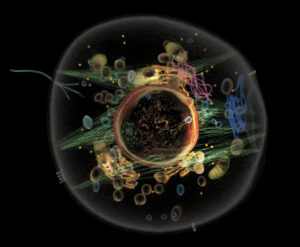Alcohol flushing tied to Alzheimer’s
A common mutation that causes facial flushing and inflammation in response to alcohol can lead to biochemical changes associated with Alzheimer’s disease, researchers say.

A common mutation that causes facial flushing and inflammation in response to alcohol can lead to biochemical changes associated with Alzheimer’s disease, new research shows.
A study, conducted in human cell cultures and in mice, indicates that people with the mutation who drink alcohol could increase their risk of Alzheimer’s disease, said Daria Mochly-Rosen, PhD, senior author of the research published Dec. 12 in Acta Neuropathologica Communications.
This mutation, which interferes with the breakdown of alcohol, is prevalent in the East Asian population. It affects about 560 million people, or about 8% of the world’s population, said Mochly-Rosen, professor of chemical and systems biology.
Understanding the relationship of alcohol and genes linked to Alzheimer’s disease will have broad consequences, she said, because a large group of people may unknowingly be harming their health by regularly consuming alcohol.
This mutation reduces the activity of aldehyde dehydrogenase 2, or ALDH2, which is a key enzyme for breaking down alcohol. As a result, a buildup of a toxic byproduct, acetaldehyde, causes skin flushing and inflammation — sometimes called Asian glow.
Though the new research raises the concern that alcohol drinkers with the mutation develop Alzheimer’s disease at a higher-than-average rate, it’s not definitive.
“Our data suggest that alcohol and Alzheimer’s disease-prone genes may put humans at greater risk of Alzheimer’s onset and progression,” Mochly-Rosen said. “This is based on our patient-derived cell studies and our animal studies, so an epidemiological study in humans should be carried out in the future.”
More research could also determine whether treatment with compounds designed to restore the enzyme’s functionality reduce the progression of Alzheimer’s.
Read more.
